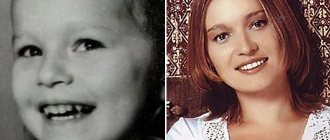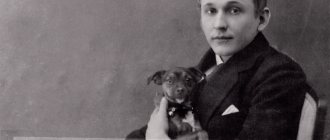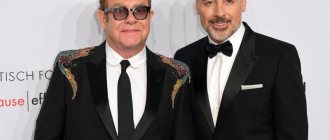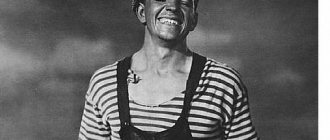This term has other meanings, see Sick.
| Dieter Bohlen | |
| basic information | |
| Full name | Dieter Gunther Bohlen |
| Date of Birth | February 7, 1954(1954-02-07) (age 66) |
| Place of Birth | Berne, Lower Saxony, Germany |
| A country | Germany Germany |
| Professions | singer, producer, composer |
| Tools | vocals, guitar |
| Genres | Eurodisco, Eurodance, pop |
| Nicknames | Steve Benson, Marcel Mardello, Ryan Simmons, Dee Bass, Joseph Cooley, Fabrizio Bastino, Jennifer Blake, Howard Houston, Art Of Music, Countdown GTO |
| Teams | Aorta, Mayfair, Monza, Sunday, Modern Talking, Blue System |
| Cooperation | CC Catch |
| Labels | Hansa, BMG, Sony BMG |
Dieter Gunter Bohlen
(German:
Dieter Günther Bohlen
; February 7, 1954 (19540207), Berne, Lower Saxony, Germany) is a German singer, musician, music producer and composer. He is best known as the founder and member of the Modern Talking duet, his own group Blue System, and the producer of the singer CC Catch.
Biography
Dieter Bohlen studied at several secondary schools (in Oldenburg, Göttingen, Hamburg), graduated from high school with honors, and on November 8, 1978, Dieter received a diploma in business economics. He was a member of the DKP, then in the youth organization of the SPD. His maternal grandmother was of Russian origin and lived in Konigsberg, now Kaliningrad[1].
During his school years he took part in several musical groups, including Aorta
and
Mayfair
, for which he wrote about 200 songs. At the same time, he does not give up trying to get work in recording studios, constantly sending out demo materials. At the end of 1978, by a happy coincidence, Dieter Bohlen got a job at the music publishing house Intersong and began working as a producer and composer on January 1, 1979.
He received his first “golden disc” for the composition Hale, Hey Louise
, performed by guitarist Ricky King. The song reached number 14 on the charts and brought the music publishing house five hundredfold profit. In the original data of the single, the author was indicated as Steve Benson - the first pseudonym of Dieter Bohlen, invented together with Andy Selleneit, who later became the chief of BMG / Ariola in Berlin, and at that time worked as an assistant at one of the departments.
In the late 1970s - early 1980s, Dieter Bohlen was a member of the duo Monza (1978) and the trio Sunday (1981), working with German stars: Katja Ebstein, Roland Kaiser, Bernd Clüver ), Bernhard Brink. In 1980-1981, under the pseudonym Steve Benson, he released three singles.
On November 11, 1983 at 11:11 (at this time in Germany the carnival is celebrated before Advent) Dieter Bohlen married Erica Sauerland. Married to Erica, three children are born: Mark (German: Marc
), Marvin Benjamin (German:
Marvin Benjamin
), Marilyn (German:
Marielin
), to whom Dieter Bohlen devotes several songs at different times in his stage career.
From 1984 to 2001, he worked on many of his projects with Luis Rodriguez, who co-produced and arranged many songs.
Modern Talking
From 1983 to 1987 and from 1998 to 2003, Dieter collaborated with Thomas Anders, with whom he recorded 5 German-language singles, the English-language single “Catch Me I'm Falling” (as part of the Headliner project), 12 albums and 20 singles (as part of a duet Modern Talking).
The Modern Talking group is Dieter Bohlen's most successful project. The popularity of the duet and the merits of Dieter Bohlen are assessed by the presentation during one evening in the Westphalian Hall of Dortmund ( Westfalenhalle
) 75 gold and platinum discs, which required a special truck to transport to the stage.
In total, more than 165 million audio media containing recordings of the duo’s compositions have been sold worldwide. The group's best-selling album was “Back For Good” (1998), selling more than 26 million copies worldwide.
Blue System
After the collapse of Modern Talking at the end of 1987, Dieter Bohlen created the group Blue System, the permanent leader of which he remained until its dissolution in 1998. During the existence of the group, it released 13 albums, 30 singles and shot 23 video clips. Blue System was practically Bohlen's next stage name.
In 1989, Bohlen became the most popular foreign performer in the USSR. At the end of the same year, Blue System's triumphant tour in the USSR followed, which was visited by a total of 400 thousand people. On October 28, 1989, Dieter received the title of the most successful German producer and composer.
In 1991, Dieter Bohlen, as part of Blue System, in a duet with Dionne Warwick, released the single It's All Over, which took 84th position in the US, precisely on the US R&B charts.
1980-1990s
Dieter Bohlen is the composer of music for many German films, programs, shows and television series. Among the most famous works are the soundtracks for Rivalen der Rennbahn, Zorc - Der Mann ohne Grenzen and Die Stadtindianer. One of his works with television was the series Tatort (Commissioner Szymanski), the title song of which in one episode was Midnight Lady performed by Chris Norman. It was this song that was the start for the second ascent of the ex-vocalist of the group Smokie to the musical Olympus. In the same film, Dieter Bohlen first appears on television as an artist, playing one of the minor roles.
The mid to late 1980s can be considered the time when Bohlen wrote the greatest amount of music and collaborated with a huge number of musical artists. In total, the musician has worked with more than 70 performers, including Al Martino, Bonnie Tyler, CC Catch, Chris Norman, Lory “Bonnie” Bianco, Les McKeown, Nino de Angelo, Engelbert Humperdinck, Ricky King and others.
An important role in Dieter Bohlen's successes was played by sound engineer Louis Rodriguez, who for a long time helped Bohlen arrange compositions. Dieter dedicated one of the most popular hits, Brother Louie, to Louis.
Between January and probably August 1994, Dieter Bohlen was busy with the Hit the Floor project. The Major T project emerged from the same group. This group existed from 1994 to 1996.
In 1997, Dieter Bohlen introduced the world to his own version of a youth group - the Touche collective.
After 2000
In the summer of 2002, Dieter Bohlen, in collaboration with journalist Katya Kesler, published an autobiographical book “Nichts als die Wahrheit” (“Nothing but the truth”[2]), which went on sale in the fall and became an absolute bestseller [ where?
]. In the autumn of the same year, he became a member of the jury of the German competition for the selection of young talents “Deutschland sucht den Superstar” (“Germany is looking for a superstar”). The first single recorded by the ten finalists, “We Have A Dream,” reaches the top of the charts and becomes double platinum. The subsequent album “United” becomes no less sold out and receives platinum status five times, becoming the second best-selling album among Dieter Bohlen’s albums.
During 2003, Dieter Bohlen entered into many advertising contracts with well-known brands involved in the production of clothing, dairy products, and the sale of communications equipment. In the fall of 2003, Dieter Bohlen released his second autobiographical book, “Hinter den Kulissen” (“Behind the Scenes”), which caused a number of scandals and a long legal battle with Thomas Anders, as a result of which Dieter was forced to pay a significant fine for unproven insults to his former partner, and also to delete the most controversial passages from the book.
In 2004, rumors appeared that on the Modern Talking albums the voice of Thomas Anders was allegedly partially duplicated by Nino de Angelo. By this time, against the background of attempts by former backing vocalists of Dieter Bohlen to promote their own project Systems in Blue, statements began to appear that in Blue System Dieter Bohlen sang only in verses, and in the choruses the vocals of the studio singers of Systems in Blue were used. Anders stated that the inability to use the same vocals further was the reason for the closure of the Blue System project. However, for example, in the first Blue System album it is easy to see that both the verses and choruses are performed by Bohlen himself, and there are backing vocals from other band members.
In the 2000s, Dieter Bohlen continues to work with young musicians. Among the successful works are compositions for Alexander (Alexander, winner of the first competition “Deutschland sucht den Superstar”), Yvonne Catterfeld, Natalie Tineo, collaboration with whom later came to naught.
The main news of the spring of 2006 was the release of a new solo soundtrack album for the comedy-parody animated film “Dieter - Der Film,” which briefly tells his story. The cartoon was first shown on RTL on March 4, 2006 and is based on the autobiographical book “Nichts als die Wahrheit” (“Nothing but the truth”). The song "Gasoline", performed by Dieter, which was performed on the show "Deutschland sucht den Superstar" in February, showed Bohlen's return to the old sound known to fans from the Blue System. The soundtrack, which appeared on the shelves of German stores on March 3, 2006, contains mainly ballads, a number of traditional mid-tempo compositions for Bolen and several successful Modern Talking songs from the repertoire of the 1980s. The album also includes the previously unreleased Modern Talking track "Shooting Star".
In 2007, Dieter created and released an album for the winner of the show “Deutschland sucht den Superstar” Mark Medlock. On the second single, Bolen performs one of the songs in a duet with Mark, and Mark’s second disc became a joint album of two musicians: Dieter not only wrote the music, but also sang some vocal parts. The third album also contains Dieter's vocals.
All the albums that Dieter Bohlen wrote for Medlock occupied high positions in the charts in Germany, Austria, and Switzerland. The collaboration with Medlock ended in 2010.
In 2010, Dieter began collaborating with the “queen” of the German hit Andrea Berg. The released album "Schwerelos" reached number one in the German charts.
Dieter Bohlen: biography
The full name of the musician is Dieter Günther Bohlen. Date of birth: February 7, 1954. Dieter was born in the city of Bern. The boy's father and mother, Hans and Edith Bohlen, were engaged in business.
At the age of 9, the child became a fan of The Beatles, which inspired him to study musical literacy. Bohlen chose the guitar as his instrument. The main thing remained - to buy it, for this purpose the boy got a job with a neighboring farmer as a potato picker. The money earned was enough to make my dream come true.
Discography
Singles
- Hallo Taxi Nummer 10 - Monza (1978)
- Heiße Nacht In Der City - Monza (10.1978)
- Don't Throw My Love Away - Steve Benson (05.1980)
- Love Takes Time - Steve Benson (04.1981)
- (You're A Devil With) Angel Blue Eyes - Steve Benson (11.1981)
- Jung Und Frei - Sunday (06.1981)
- Hale, Hey Louise - Sunday (10.1981)
- Lucky Guy - Ryan Simmons (09.1984)
- The Night Is Yours - The Night Is Mine - Ryan Simmons (06.1985)
Albums
| Year | Name | Notes |
| 2006 | Dieter - Der Film |
First success
In 1978, Dieter Bohlen's creative biography continued with participation in the groups Monza and Sunday as a vocalist. The young man continued to develop as a songwriter. The first musical composition that brought Bohlen great success and money was Hale, Hey Louise. He wrote it for Ricky King. The song earned the publisher a five hundredfold profit. The author of the work was Steve Benson. This was the pseudonym of Dieter Bohlen.
The musician wanted to move on, but for this he needed songs in English.
Autobiographies
- Nichts als die Wahrheit (Nothing but the truth), 2002. In co-author. with K. Kesler. Russian edition: M.: ExpertLand LLC. — per. G. Kohlmuller. — ISBN 5-9900103-1-1. — 50,000 copies. — 306 p.
- Hinter den Kulissen (Behind the Scenes), 2003
- Meine Hammer-Sprüche (My most killer one-liners), 2006
- Nur die Harten kommen in den Garten!: Der Weg zum Superstar, (Only the persistent win: the path to glory) 2008
- Der Bohlenweg: Planieren statt sanieren, (Bohlen's Way: Design, not Repair) 2008
Personal life of Dieter Bohlen, photo
Dieter is still successfully engaged in creativity today. The talented musician has many fans who follow not only the professional biography of Dieter Bohlen, but also the events taking place in his personal life.
The singer is distinguished by his loving nature. He was married more than once. Personal life is always present in the biography of Dieter Bohlen. The musician is the father of many children.
Links
Collections - The Final Album
- Dieter: Der Film
Singles - "You're My Heart, You're My Soul"
- "You Can Win If You Want"
- "Cheri, Cheri Lady"
- "Brother Louie"
- "Atlantis Is Calling (SOS for Love)"
- "Geronimo's Cadillac"
- "Give Me Peace on Earth"
- "Lonely Tears in Chinatown"
- "Jet Airliner"
- "Don't Worry"
- "In 100 Years..."
- "Locomotion Tango"
- "You're My Heart, You're My Soul '98"
- "Brother Louie '98"
- "Space Mix '98"
- "We Take the Chance"
- "You Are Not Alone"
- "Sexy Sexy Lover"
- "Brother Louie '99"
- "China in Her Eyes"
- "Don't Take Away My Heart"
- "Win the Race"
- "Last Exit to Brooklyn"
- "Ready for the Victory"
- "Juliet"
- "TV Makes the Superstar"
Other songs - "No Face, No Name, No Number"
- "Witchqueen of Eldorado"
- "Do You Wanna"
- "Shooting Star"
Concert tours - Back for Good Tour
- Alone Tour
- Year of the Dragon Tour
- America Tour
- Victory Tour
- Universe Tour
Articles on the topic - Discography
- Songs
- Luis Rodriguez
- Blue System
- Nora Balling
- Dieter: Der Film
Presenters Marco Schreyl (1-present) Daniel Hartwich (2-present) Judges Dieter Bohlen (1-present) Ruth Moschner (1) André Sarrasani (1) Sylvia Van der Vaart (2-present) Bruce Darnell (2-4) Motsi Mabuse (5-present) .V.) Winners Ricardo Marinello · Michael Hirte · Yvo Antoni · Freddy Sahin-Scholl · Leo Rojas Other notable alumni Andrea Renzullo Presenters Carsten Spengemann (1-2) Michelle Hunziker (1-2) Tooske Ragas (3-4) Marco Schreyl (3-present) Judges Dieter Bohlen (1-present) · Thomas Bug (1-2) · Shona Fraser (1-2) · Thomas M. Stein (1-2) · Sylvia Kollek (3) · Heinz Henn (3-4) · Anja Lukaseder (4-5) · Andreas "Bär" Läsker (5) · Nina Eichinger (6-7) · Max von Thun (6 - First episode) · Volker Neumüller (6-7) · Sylvia van der Vaart (7 - final only) Fernanda Brandao (8) Patrick Nuo (8) Bruce Darnell (9-present) Natalie Horler (9-present) Bill Kaulitz (10) Tom Kaulitz (10) · Andrea Berg (10) Winners Alexander Close (2003) Ellie Earle (2004) Tobias Regner (2006) Mark Medlock (2007) Thomas Godoy (2008) Daniel Schumacher (2006) Merzad Marashi (2010) Pietro Lombardi (2011) Luke Hanni (2012) Beatrice Egli (2013) Winners' singles "Take Me Tonight" · "This Is My Life" · "I Still Burn" · "Now or Never" · "Love Is You" · "Anything but love" · "Don't Believe" · "Call My Name" · "Don't Think About Me" · "Nothing Else Matters" · "Mein Herz" Second places Juliette Schoppmann · Denise Tillmanns · Mike Leon Grosch · Martin Stosch · Fady Maalouf · Sarah Kreuz · Menowin Fröhlich · Sarah Engels Other alumni Daniel Lopez · Lisa Bund · Philipp Bühler · Gracia Baur · Vanessa Jean Dedmon · Monika Ivkic · Daniel Küblböck · Nevio Passaro · Vanessa Struhler · Rania Zeriri · Norman Langen · Sebastian Wurth · Christoph Goering · Joey Heindle
"Modern Talking"
In 1983, the group “Modern Talking” recorded songs in German “Was macht das schon”, “Wovon träumst du denn”, with which they entered the first positions of national music ratings. In 1984, the first English-language hit “You're My Heart, You're My Soul” appeared, which brought the duo worldwide fame.
During two periods of work, the group created 12 studio albums, which sold 165 million copies worldwide. Modern Talking holds the title for most consecutive multi-platinum albums: “The First Album”, “Let's Talk About Love”, “Ready for Romance” and “In the Middle of Nowhere”.
The best-selling disc of the musical group is the 1998 album “Back For Good”, the circulation of which is 26 million copies. In 2014, the musicians released a collection of hits dedicated to the 30th anniversary of the group.
Excerpt characterizing Bohlen, Dieter
About five people, large and small, courtyard men ran out onto the front porch to meet the master. Dozens of women, old, big and small, leaned out from the back porch to watch the approaching hunters. The presence of Natasha, a woman, a lady on horseback, brought the curiosity of the uncle's servants to such limits that many, not embarrassed by her presence, came up to her, looked into her eyes and in her presence made their comments about her, as if about a miracle being shown, which is not a person, and cannot hear or understand what is said about him. - Arinka, look, she’s sitting on her side! She sits herself, and the hem dangles... Look at the horn! - Fathers of the world, that knife... - Look, Tatar! - How come you didn’t somersault? – said the bravest one, directly addressing Natasha. The uncle got off his horse at the porch of his wooden house overgrown with a garden and, looking around at his household, shouted imperiously that the extra ones should leave and that everything necessary for receiving guests and hunting would be done. Everything ran away. Uncle took Natasha off the horse and led her by the hand along the shaky plank steps of the porch. The house, unplastered, with log walls, was not very clean - it was not clear that the purpose of the people living was to keep it stain-free, but there was no noticeable neglect. The hallway smelled of fresh apples, and there were wolf and fox skins hanging. Through the front hall, the uncle led his guests into a small hall with a folding table and red chairs, then into a living room with a birch round table and a sofa, then into an office with a torn sofa, a worn carpet and with portraits of Suvorov, the owner’s father and mother, and himself in a military uniform . There was a strong smell of tobacco and dogs in the office. In the office, the uncle asked the guests to sit down and make themselves at home, and he himself left. Scolding, his back not cleaned, entered the office and lay down on the sofa, cleaning himself with his tongue and teeth. From the office there was a corridor in which screens with torn curtains could be seen. Women's laughter and whispers could be heard from behind the screens. Natasha, Nikolai and Petya undressed and sat on the sofa. Petya leaned on his arm and immediately fell asleep; Natasha and Nikolai sat in silence. Their faces were burning, they were very hungry and very cheerful. They looked at each other (after the hunt, in the room, Nikolai no longer considered it necessary to show his male superiority in front of his sister); Natasha winked at her brother, and both did not hold back for long and laughed loudly, not yet having time to think of an excuse for their laughter. A little later, the uncle came in wearing a Cossack jacket, blue trousers and small boots. And Natasha felt that this very suit, in which she saw her uncle with surprise and mockery in Otradnoye, was a real suit, which was no worse than frock coats and tails. Uncle was also cheerful; Not only was he not offended by the laughter of his brother and sister (it could not enter his head that they could laugh at his life), but he himself joined in their causeless laughter. - That’s how the young countess is - a pure march - I’ve never seen another like it! - he said, handing one pipe with a long shank to Rostov, and placing the other short, cut shank with the usual gesture between three fingers. “I left for the day, at least on time for the man and as if nothing had happened!” Soon after the uncle, the door opened, obviously a barefoot girl by the sound of her feet, and a fat, ruddy, beautiful woman of about 40, with a double chin, and full, ruddy lips, entered the door with a large tray in her hands. She, with hospitable presence and attractiveness in her eyes and every movement, looked around at the guests and bowed respectfully to them with a gentle smile. Despite her greater-than-usual thickness, which forced her to stick her chest and stomach forward and hold her head back, this woman (the uncle’s housekeeper) walked extremely lightly. She walked up to the table, put down the tray and deftly with her white, plump hands removed and placed bottles, snacks and treats on the table. Having finished this, she walked away and stood at the door with a smile on her face. - “Here I am!” Do you understand uncle now?” her appearance told Rostov. How not to understand: not only Rostov, but also Natasha understood her uncle and the meaning of the frowning eyebrows, and the happy, self-satisfied smile that slightly wrinkled his lips as Anisya Fedorovna entered. On the tray were herbalist, liqueurs, mushrooms, cakes of black flour on yuraga, comb honey, boiled and sparkling honey, apples, raw and roasted nuts and nuts in honey. Then Anisya Fedorovna brought jam with honey and sugar, and ham, and freshly fried chicken. All this was Anisya Fedorovna’s farming, collecting and jamming. All this smelled and resonated and tasted like Anisya Fedorovna. Everything resonated with richness, purity, whiteness and a pleasant smile. “Eat, young lady countess,” she said, giving Natasha this and that. Natasha ate everything, and it seemed to her that she had never seen or eaten such flatbreads on yurag, with such a bouquet of jams, nuts on honey and such chicken. Anisya Fedorovna came out. Rostov and his uncle, washing down dinner with cherry liqueur, talked about the past and future hunt, about Rugai and the Ilagin dogs. Natasha, with sparkling eyes, sat straight on the sofa, listening to them. Several times she tried to wake Petya up to give him something to eat, but he said something incomprehensible, apparently not waking up. Natasha was so happy in her soul, so happy in this new environment for her, that she was only afraid that the droshky would come for her too soon. After an accidental silence, as almost always happens with people hosting their acquaintances in their home for the first time, the uncle said, answering the thought that his guests had: “So I’m living out my life... You’ll die,” it’s a matter of course. - there will be nothing left. So why sin? Uncle's face was very significant and even beautiful when he said this. At the same time, Rostov involuntarily remembered everything that he had heard good from his father and neighbors about his uncle. Throughout the entire region of the province, the uncle had a reputation as the noblest and most disinterested eccentric. He was called upon to judge family matters, he was made an executor, secrets were entrusted to him, he was elected to judge and other positions, but he stubbornly refused public service, spending the autumn and spring in the fields on his brown gelding, sitting at home in the winter, lying in his overgrown forest in the summer. garden. - Why don’t you serve, uncle? - I served, but quit. I’m no good, it’s just a matter of march, I won’t understand anything. This is your business, but I don’t have enough sense. As for hunting, it’s a different matter; it’s pure marching! “Open the door,” he shouted. - Well, they closed it! “The door at the end of the corridor (which my uncle called the kolidor) led to the hunting room: that was the name of the men’s room for hunters. Bare feet quickly padded and an invisible hand opened the door to the hunting room. From the corridor the sounds of a balalaika, which was obviously played by some master of this craft, could be clearly heard. Natasha had been listening to these sounds for a long time and now went out into the corridor to hear them more clearly. “This is my coachman Mitka... I bought him a good balalaika, I love it,” said the uncle. “It was my uncle’s habit that when he came home from hunting, Mitka would play the balalaika in the hunting lodge. Uncle loved listening to this music. “How good, really excellent,” said Nikolai with some involuntary disdain, as if he was ashamed to admit that he really liked these sounds. - How great? – Natasha said reproachfully, feeling the tone in which her brother said this. - Not great, but what a delight it is! “Just as her uncle’s mushrooms, honey and liqueurs seemed to her to be the best in the world, so this song seemed to her at that moment the height of musical charm. “More, please, more,” Natasha said through the door as soon as the balalaika fell silent. Mitka set it up and again brilliantly rattled Barynya with busts and interceptions. Uncle sat and listened, tilting his head to the side with a barely noticeable smile. The Lady's motive was repeated a hundred times. The balalaika was tuned several times and the same sounds rattled again, and the listeners did not get bored, but only wanted to hear this game again and again. Anisya Fedorovna entered and leaned her corpulent body against the ceiling. “Please listen,” she said to Natasha, with a smile extremely similar to her uncle’s smile. “He plays well for us,” she said. “He’s doing something wrong in this knee,” the uncle suddenly said with an energetic gesture. - Here you need to scatter - it’s a pure matter of march - scatter... - Do you really know how? – Natasha asked. – Uncle smiled without answering. - Look, Anisyushka, are the strings intact or something on the guitar? I haven’t picked it up for a long time - it’s pure marching! abandoned. Anisya Fedorovna willingly went with her light tread to carry out her master’s instructions and brought a guitar. The uncle blew off the dust without looking at anyone, tapped the lid of the guitar with his bony fingers, tuned it and adjusted himself in the chair. He took (with a somewhat theatrical gesture, placing the elbow of his left hand) the guitar above the neck and, winking at Anisya Fedorovna, began not the Lady, but struck one sonorous, clean chord, and measuredly, calmly, but firmly began to finish the famous song at a very quiet pace: Po li and ice pavement. At the same time, in time with that sedate joy (the same one that Anisya Fedorovna’s whole being breathed), the motive of the song began to sing in the souls of Nikolai and Natasha. Anisya Fedorovna blushed and, covering herself with a handkerchief, left the room laughing. Uncle continued to finish the song cleanly, diligently and energetically, looking with a changed, inspired look at the place from which Anisya Fedorovna had left. There was just a little something laughing in his face on one side, under his gray mustache, and he laughed especially when the song progressed further, the beat quickened, and something came off in places where it was too loud. - Lovely, lovely, uncle; more, more,” Natasha screamed as soon as he finished. She jumped up from her seat, hugged her uncle and kissed him. - Nikolenka, Nikolenka! - she said, looking back at her brother and as if asking him: what is this? Nikolai also really liked his uncle’s playing. The uncle played the song a second time. The smiling face of Anisya Feodorovna appeared again at the door and from behind her there were still other faces... “Behind the cold key, she shouts: girl, wait!” Uncle played, made another deft move, tore it off and moved his shoulders. “Well, well, my dear, uncle,” Natasha moaned in such a pleading voice, as if her life depended on it. The uncle stood up and it was as if there were two people in him - one of them smiled seriously at the merry fellow, and the merry fellow made a naive and neat prank before the dance. - Well, niece! - the uncle shouted, waving his hand towards Natasha, tearing off the chord. Natasha threw off the scarf that was draped over her, ran ahead of her uncle and, putting her hands on her hips, made a movement with her shoulders and stood. Where, how, when did this countess, raised by a French emigrant, suck into herself from that Russian air that she breathed, this spirit, where did she get these techniques that pas de chale should have long ago been supplanted? But these spirits and techniques were the same, inimitable, unstudied, Russian ones that her uncle expected from her. As soon as she stood up and smiled solemnly, proudly and slyly with gaiety, the first fear that gripped Nikolai and everyone present, the fear that she would do the wrong thing, passed and they were already admiring her. She did the same thing and did it so precisely, so completely accurately that Anisya Fedorovna, who immediately handed her the scarf she needed for her business, burst into tears through laughter, looking at this thin, graceful, so alien to her, well-bred countess in silk and velvet. , who knew how to understand everything that was in Anisya, and in Anisya’s father, and in her aunt, and in her mother, and in every Russian person.
Early years, childhood and family of Dieter Bohlen
Dieter Bohlen was born on February 7, 1954 in the city of Bern, but subsequently moved frequently.
So, as you know, he received his education at once in three different schools, which were located in different cities - Göttingen, Oldenburg and Hamburg. During his school years, he was a member of the SPD party, and also took an active part in the cultural life of each of his schools. It is worth noting that our today’s hero began to study music as a child. While still at school, he participated in youth groups Mayfair and Aorta, for which he wrote about two hundred musical compositions. Starting at the age of sixteen, Dieter Bohlen began actively sending his best compositions to various recording companies in Germany, trying to get work there. However, for a long time the young guy received only refusals.
The situation changed only in 1978. During this period, she showed interest in his services and offered the musician to take one of the vacancies. So, our today's hero began working as a composer and producer. In this capacity, Dieter achieved good success.
He wrote many successful compositions for various German performers. One of the most famous was the song “Hale, Hey Louise”, performed by Ricky King and instantly becoming a national hit in Germany. For this song, Dieter Bohlen received his first “golden disc”, and with it also a considerable profit. It is very noteworthy that during this period our today's hero worked under the pseudonym Steve Benson.
Under this name, the musician also worked in the groups Monza and Sunday, which were quite famous in some regions of Germany at the turn of the seventies and eighties. In parallel with this, Dieter Bohlen (or rather, Steve Benson) recorded several solo singles, and also wrote a whole lot of songs for other famous performers of those years.











